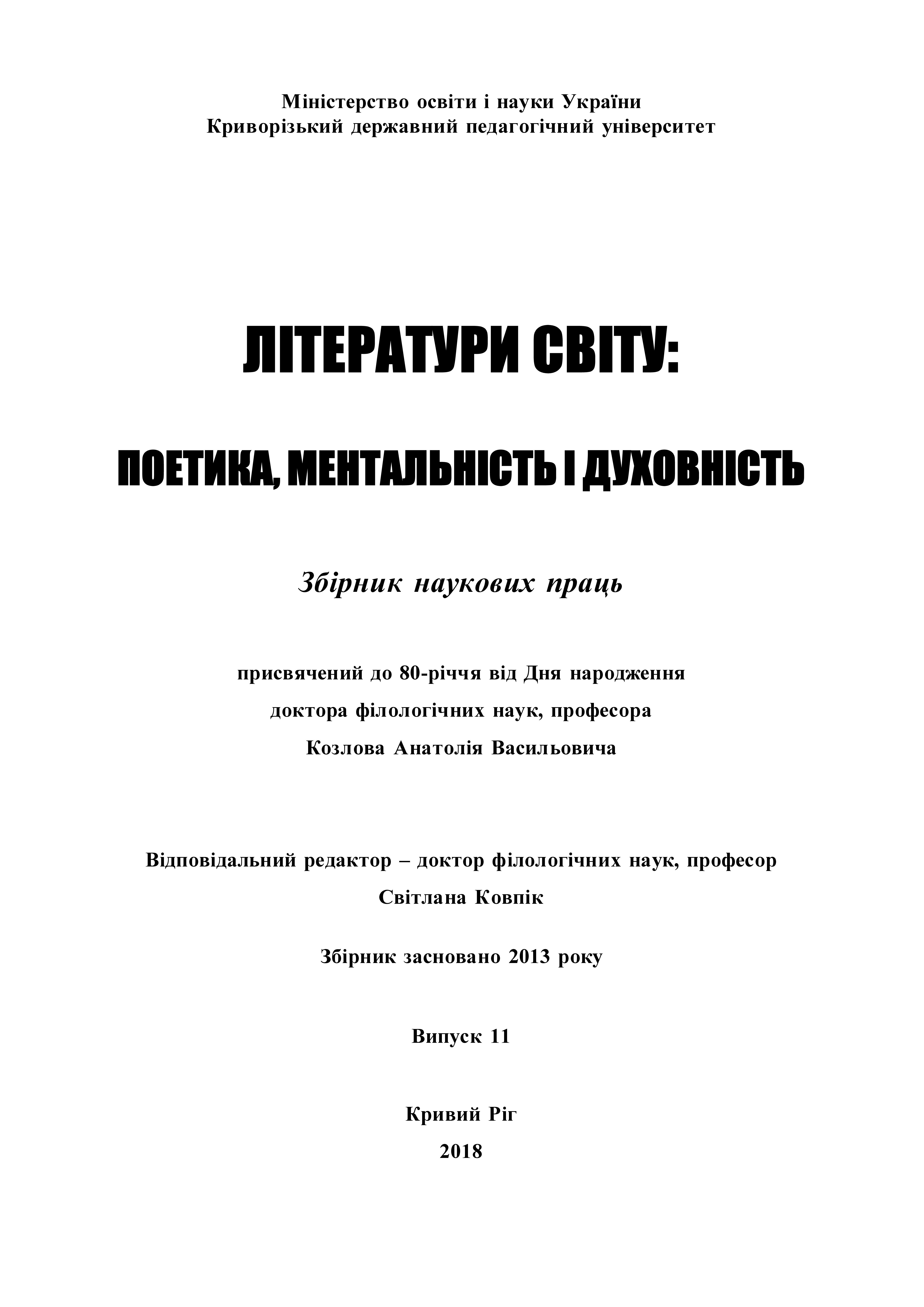“To reach the light one should go through the darkness”. The signs of anti-utopia in the novel «Masha, or the Fourth Reich» by Yaroslav Melnyk
DOI:
https://doi.org/10.31812/world_lit.v11i0.2074Keywords:
utopia, dystopia, anticipation, ideal state, neo-humanism, freedom, ritual, man, animalAbstract
The article focuses on the novel by Yaroslav Melnyk «Masha, or the Fourth Reich», which has distinct signs of anti-utopia. The author simulates the state in the distant future, which is distinguished by neo-humanism and at the first look perfect society turns out to be a totalitarian society, in which people possess humanoid creatures – stors. The novel by Yaroslav Melnyk like most anti-utopias raises the question of human freedom and caste division. The peculiarity of «Masha, or the Fourth Reich» is the question of freedom and division, which is not solved within the binary opposition «man – man», but «man is an animal». The conflict between man and the state does not motivate a man's fear of a system or a sense of his secondaryness, rather a fatigue from over-saturation in meeting his own needs.
In most dystopia society demonstrates its own rigid structuring and baseness on a number of taboos that form the world of ordinary citizen. In «Masha, or the Fourth Reich» Yaroslav Melnyk models the world, which is in its very essence. Although the New Reich holds the highest Council of Cottres, however, the social life is carried out in accordance with the Constitution, in which the main paragraph is about human freedom. It would seem that such a society has nothing to do with the totalitarian. But the «game of democracy» ends where there is a threat of destruction of the system. Under such conditions the paragraph on human freedom ceases to be decisive. Instead of the prevailing paragraph is the protection of society, even by violating the rights and freedoms of its citizens.
In the novel «Masha, or the Fourth Reich» the world is ritualized. The author states the fact that any ritual that exists in society is sanctified by «history», that is its time repetition provides a sense of tradition. The plot conflict is connected with the reluctance to perform one or another ritual that is an inherent social role of the hero. A peculiar place in the dilemma between apparent well-being and inner loneliness is a human like an animal – Masha-stor. Initially, the protagonist's relationship does not go beyond his perceptible attitude to animals or stors. But the more he is aware of Masha's human nature the deeper the gap between them and the family.
An indication of a dystopia is the formation of a space of no alternatives, when every citizen of society is convinced that the system offered to him is the only correct and only possible one. The heroes of the novel «Masha, or the Fourth Reich» also believe that after World War II only their world survived that they are the only people on the planet Earth. A terrible shock for Dima's correspondent is the understanding that the Reich is «not a planetary state», that is a world where only humans live and there are no stors where even time is excellent.
So, the author solves the myth about the possibility of creating an ideal society. The new humanism of the Reich, after which people possess human beings – the seams, leads to the spiritual degradation of a person who is in a «social lethargic dream» of security.






